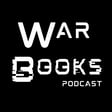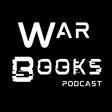
Russia-Ukraine War – Ukrainian Life During Wartime – Danielle Leavitt
Ep 056 – Nonfiction. Historian Danielle Leavitt discusses her new book, “By the Second Spring: Seven Lives and One Year of the War in Ukraine”
‘An intimate, affecting account of life during wartime, told through the lives that have been shattered.
Since Russia’s full-scale invasion of Ukraine in 2022, many Americans have identified deeply with the Ukrainian cause, while others have cast doubt on its relevance to their concerns. Meanwhile, even as scores of Americans rally to the Ukrainian cause and adopt Volodymyr Zelensky as a hero, the lives of Ukrainians remain opaque and mostly anonymous. In By the Second Spring, the historian Danielle Leavitt goes beyond familiar portraits of wartime heroism and victimhood to reveal the human experience of the conflict. An American who grew up in Ukraine, Leavitt draws on her deep familiarity with the country and a unique trove of online diaries to track a diverse group of Ukrainians through the first year of Russia’s full-scale invasion. Among others, we meet Vitaly, whose plans to open a coffee bar in a Kyiv suburb come to naught when the Russian army marches through his town and his apartment building is split in two by a rocket; Anna, who drops out of the police academy and begins a tumultuous relationship with a soldier she meets online; and Polina, a fashion-industry insider who returns home from Los Angeles with her American husband to organize relief. To illuminate the complex resurgence of Ukraine’s national spirit, Leavitt also tells the story of Volodymyr Shovkoshitniy―a nuclear engineer at Chernobyl who went on to lead a daring campaign in the late 1980s to return the bodies of three Ukrainian writers who’d died in a Soviet gulag. Writing with closeness and compassion, Leavitt has given us an interior history of Europe’s largest land war in seventy-five years.’
Subscribe to the War Books podcast here:
YouTube: https://www.youtube.com/@warbookspodcast
Apple: https://apple.co/3FP4ULb
Spotify: https://spoti.fi/3kP9scZ
Follow the show here:
Twitter: https://twitter.com/warbookspodcast
Facebook: https://www.facebook.com/warbookspodcast
Instagram: https://www.instagram.com/warbookspodcast/

